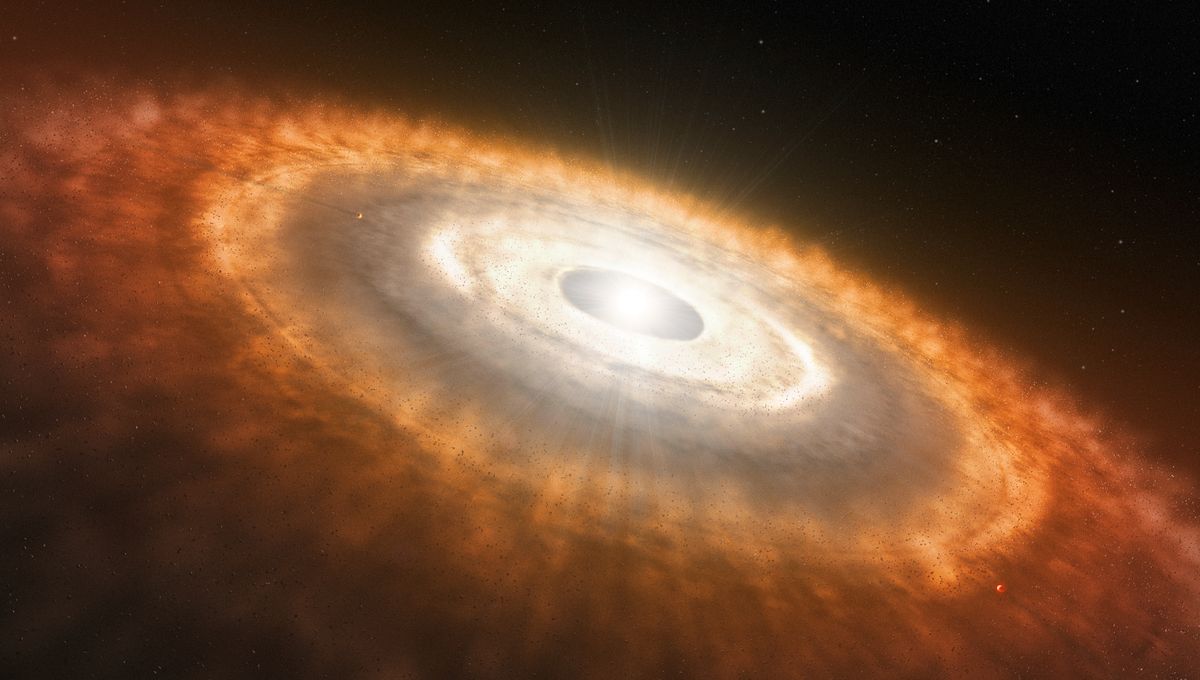
Over the last few decades, astronomers have discovered that planets are extremely common. Now they are focusing on better understanding how they form. And there have been some curveballs, delivering completely unexpected insights. Among the latest ones, researchers discovered that even around the hotter stars, you can find the building blocks of rocky planets.
This discovery was not predicted. Hotter stars emit a lot of ultraviolet light, which can easily break apart molecules. Using JWST, astronomers conducted an investigation of 15 eXtreme Ultraviolet Environments (XUE) located in the Lobster Nebula. The nebula hosts some of the most massive stars in the galaxy, and their brightness should disperse and destroy the material located in the innermost parts of their planet-forming disks. That’s where rocky planets like the Earth form.
The first target, XUE 1, is a protoplanetary disk that has been exposed to a huge amount of ultraviolet radiation. JWST showed that despite these extreme physical conditions, the building blocks of rocky planets are all there, including crystalline silicate dust.
“We find that the inner disk around XUE 1 is remarkably similar to those in nearby star-forming regions,” team member Rens Waters, of Radboud University in the Netherlands, said in a statement. “We’ve detected water and other molecules like carbon monoxide, carbon dioxide, hydrogen cyanide and acetylene. However, the emission found was weaker than some models predicted. This might imply a small outer disk radius.”
“We were surprised and excited because this is the first time that these molecules have been detected under these extreme conditions,” added Lars Cuijpers, also of Radboud University.
While there is variation, the similarities between these extreme disks and the more common ones are there. This doesn’t mean that rocky planets might be common around these stars, and XUE 1 might also be an exception among these extreme environments. The team is going to investigate all the other targets to see what kind of molecules persist around other bright fledgling stars.
“XUE 1 shows us that the conditions to form rocky planets are there, so the next step is to check how common that is,” team lead María Claudia Ramírez-Tannus of the Max Planck Institute for Astronomy in Germany. “We will observe other disks in the same region to determine the frequency with which these conditions can be observed.”
The study is published in The Astrophysical Journal Letters.
Source Link: Rocky Planets Can Form Even In The Most Extreme Environments